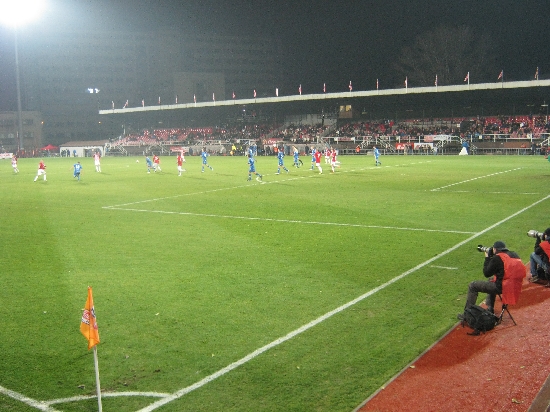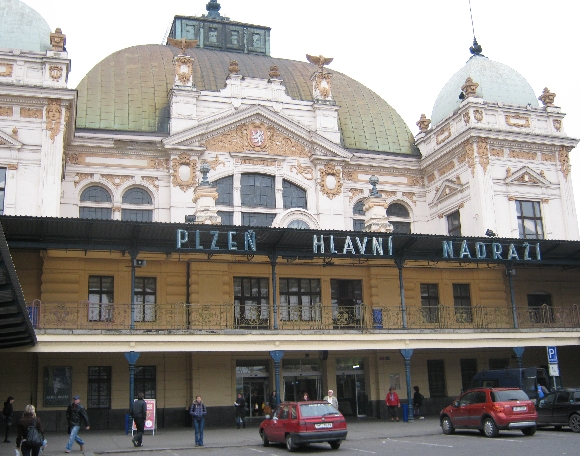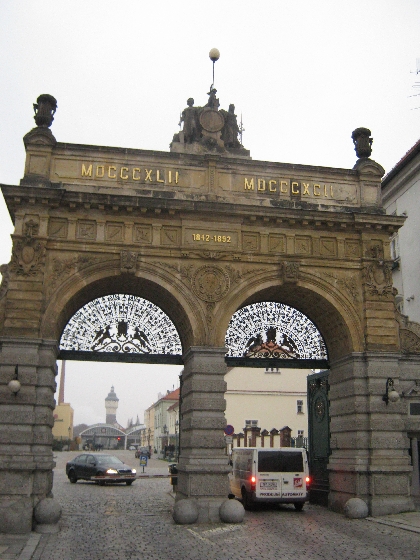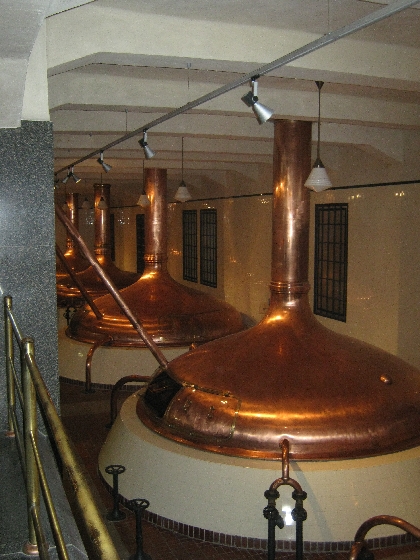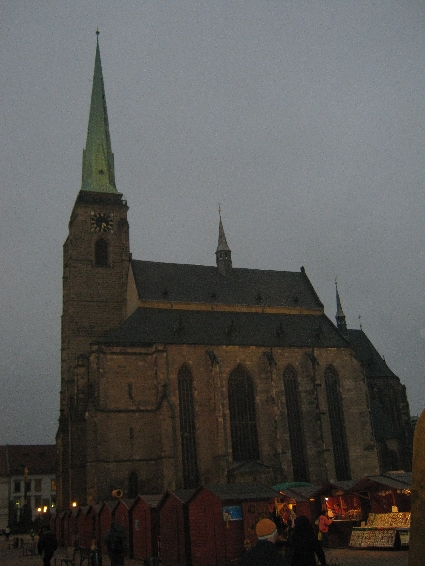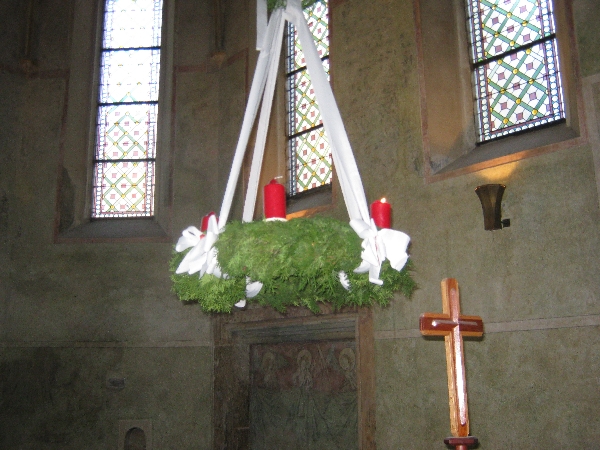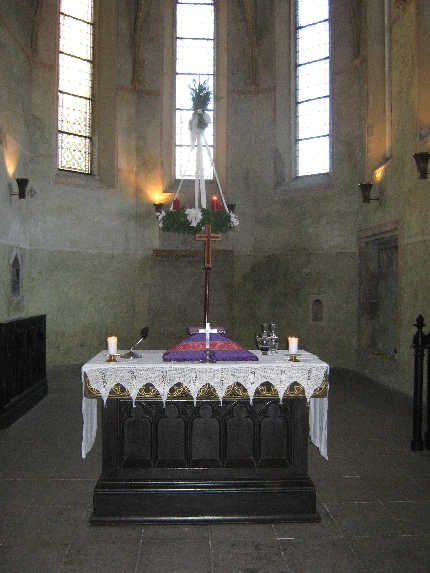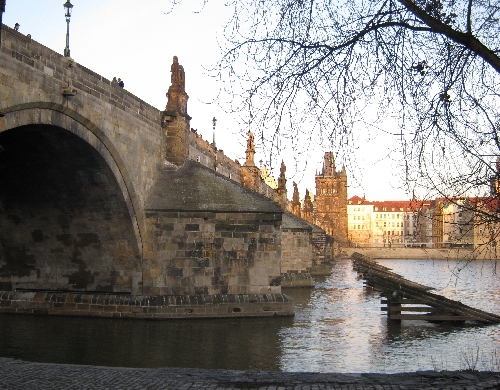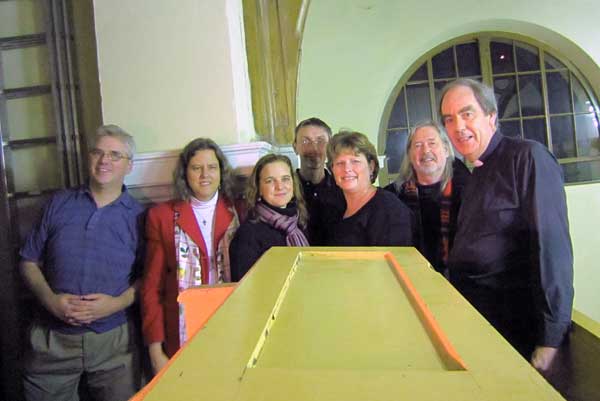
As I wrote in my previous post, last Sunday evening, 18th December 2011, the Prague Anglican congregation created a little bit of history by holding the first ever English-language Anglican service in Brno. In the appropriately named Betlémský Kostel / Bethlehem Chapel, we held a Service of Lessons and Carols for Christmas.
Brno is the second largest city in the Czech Republic with a population of about 400,000 people. It is home to a number of high tech companies together with numerous university and research institutions therefore meaning that there are quite a large number of English-speakers living there. But unlike Prague (population 1.3 million), where St. Clement’s Anglican Episcopal Church is one of eight mainstream English-speaking congregations, in Brno there are only two – a Roman Catholic one and an small Evangelical Fellowship with no Pastor. In terms of the Christian spectrum, there is a large gap in between for which there is currently no provision whatsoever.
Officially the whole of the Czech Republic is my ‘parish’ and in the more than three years I have been here, I have had a couple of enquiries from individuals spending a few months in Brno, asking if we ever hold English-language services in the city. Sadly, I’ve always had to reply saying that we don’t. In recent months, as I have talked with members of the Church Council as to how we might ‘grow the congregation’, it has often struck me that we ought to look at doing so away from Prague in places where there is ‘far less competition’ (if you will excuse that expression this context) and where there is almost certainly far greater need.
Earlier this year whilst I was pondering all of this, I had a totally unexpected phone call from a fluent English-speaking Czech young lady from Brno called Katka. I should really say extremely fluent as she makes a living as a freelance interpreter and translator. What Katka wanted was any old hymnbooks we might have, so that the Czech congregation to which she belongs, could occasionally sing a hymn in English. Taking her phone call as the prompting of the Holy Spirit, I put to her the idea I had of trying to start a satellite English-speaking Anglican congregation in Brno.
Fortunately, Katka was immediately enthusiastic and has since spent numerous hours doing research on my behalf, finding possible Church buildings to use, and helping to organise publicity, particularly via the Brno Expat Centre. The project has also involved me in two day trips to Brno by train, in order to meet people and look at venues. But all of this preparation led to the successful holding of our first ever service last Sunday evening.
I’ve also been most encouraged by the support and enthusiasm of members of the Prague Anglican congregation regarding the Brno venture. As can be seen in the photograph above, five of them volunteered to come with me to Brno for the service. All of them first came to our Sunday Eucharist at 11.00 in the morning in Prague, then managed some quick refreshment at our post-service Coffee Hour, before taking the tram for three stops to the main railway station in order to catch the 13.42 train for Brno. The return train got back at to Prague at 23.15 meaning that we didn’t get back to our respective homes until around midnight.

Our organist was Larry Leifeste who with his wife Celieta, only joined our congregation in August when they moved from Texas to Prague. It was obviously the first time he had ever played the organ in the Bethlehem Chapel and he found that much to his surprise, it had no volume pedal. How then did he increase the volume? By literally ‘pulling out all the stops’!
Celieta sang two wonderful solos – a setting of the Magnificat and an American spiritual ‘Sweet little Jesus boy’. David Hellam and Gordon Truefit both read a lesson and together with me, sang the individual verses of ‘We three kings’; Gordon as ‘gold’, myself as ‘frankincense’ and David as ‘myrrh’. David along with Karen Moritz also did the important job of welcoming all those who came.
Katka also read a lesson as did three other Brno people that she successfully recruited. Katka also helped to lay on some wonderful post-service refreshments giving me the chance to talk with several of those who attended.
Several of the thirty-strong congregation filled out contact forms with various expressions of interest in being part of future services. Currently, these are planned to start on a monthly basis on Sunday 8th January 2012 using a smaller nearby venue belonging to the Czechoslovak Hussite Church. More details can be found on the new Brno page of our website.
I am really quite excited about starting a satellite congregation in Brno. I suspect that we will be quite small to start with but, as Jesus said, “For where two or three come together in my name, there am I with them.” Matthew 18. 20 TNIV Or alternatively, ‘from small acorns, large oak trees grow’. Watch this space!





